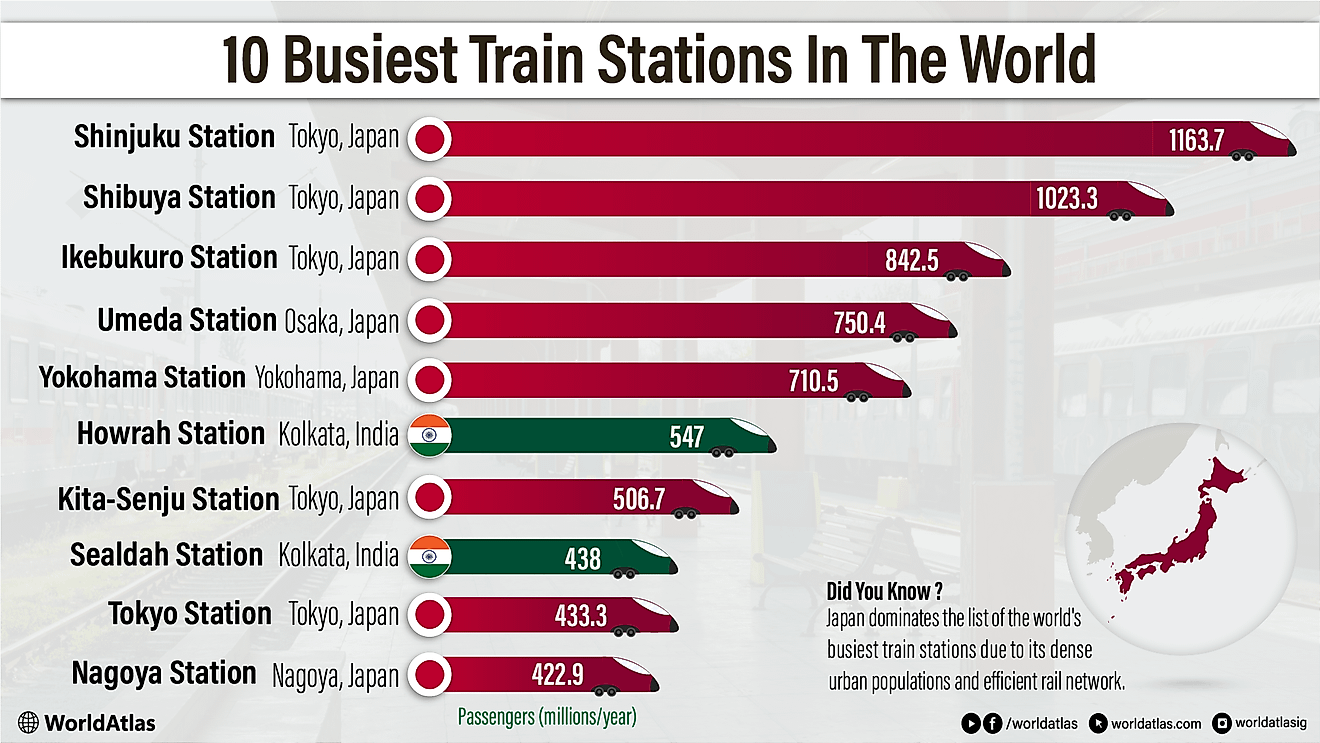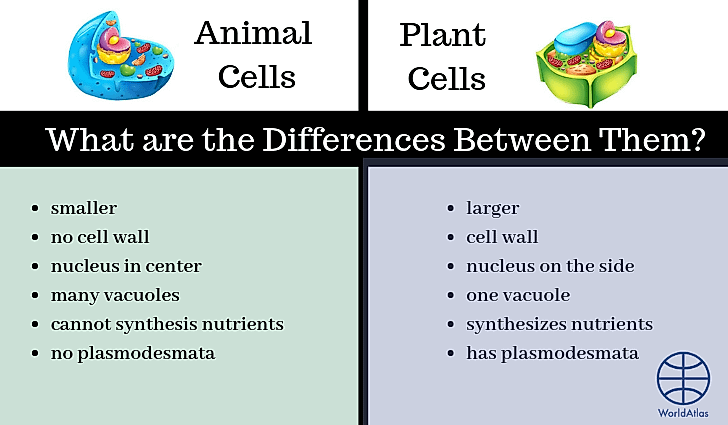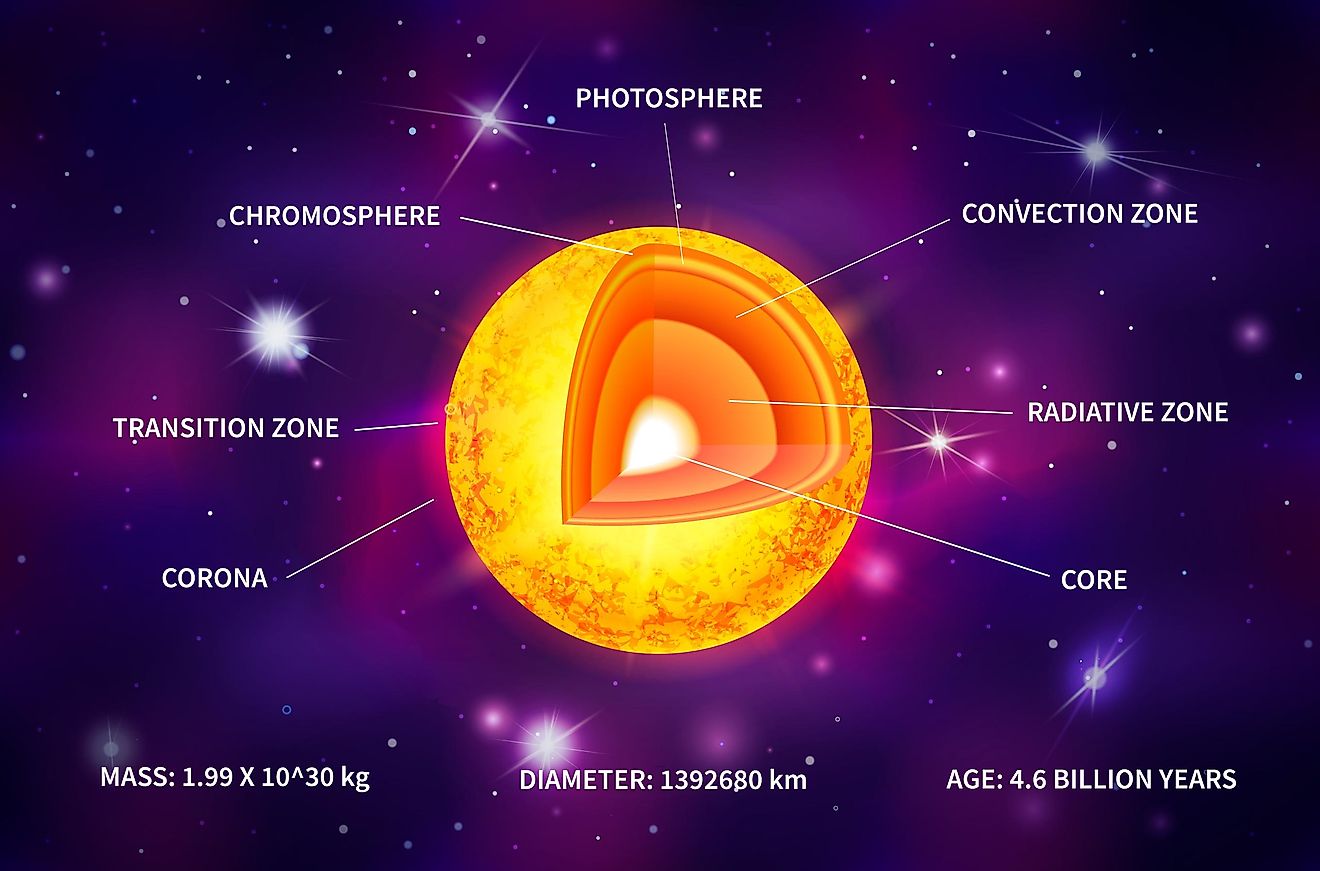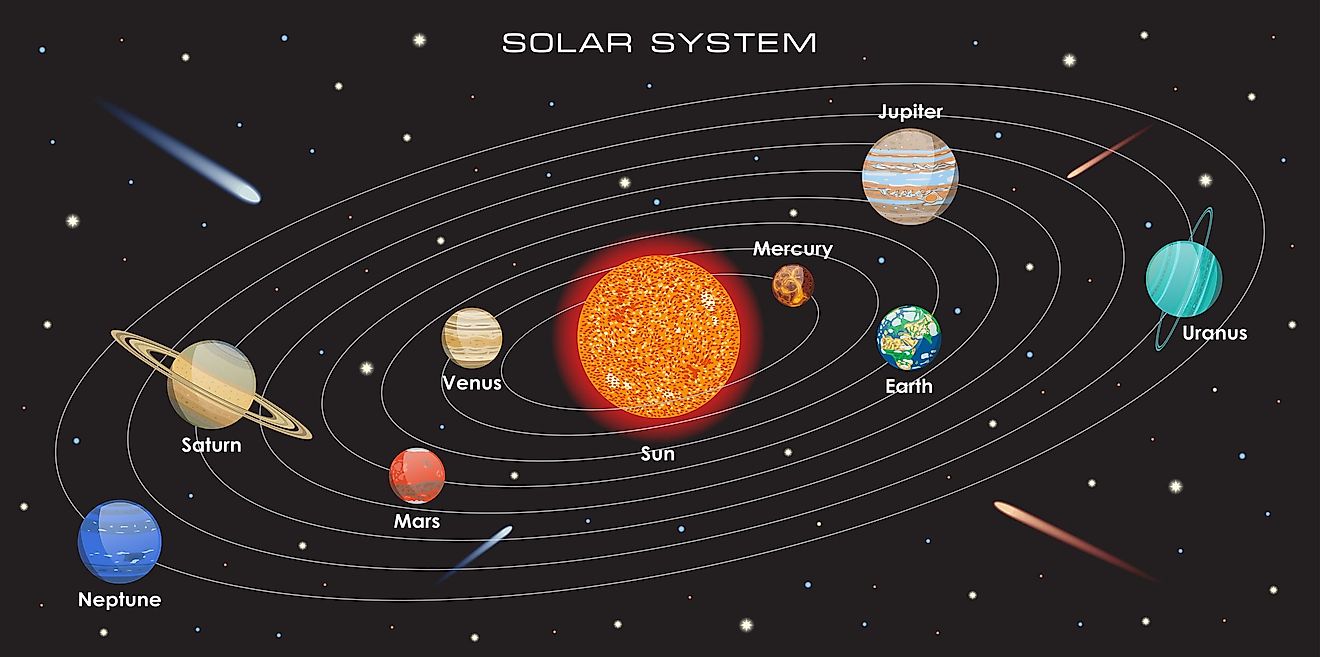
Quantum Tech: America’s New Arms Race
In the 1980s, global security concerns centered on the threat of nuclear weapons and mushroom clouds. Today, the next great arms race is unfolding not with bombs or missiles, but with particles at the atomic scale. This race is driven by advances in quantum technology—an emerging field that is already influencing the global balance of power.
Quantum breakthroughs rarely make headlines. They lack the visual drama of traditional technologies. Yet, while public attention has focused on artificial intelligence and social media trends, nations such as the United States and China have invested billions into this rapidly evolving domain. The implications are profound—economically, militarily, and even at the level of individual privacy and security.
So... What Is Quantum Technology?

Put simply, quantum technology leverages the strange and powerful principles of quantum physics to achieve capabilities far beyond what classical technologies can offer. Here are a few key areas where it's making an impact:
Quantum computing:
Think of a traditional computer as an incredibly fast calculator. It solves problems by evaluating one possibility at a time, much like trying every combination on a lock until it finds the correct one.
Quantum computers operate on entirely different principles. They use quantum objects—tiny particles that can exist in multiple states simultaneously (this is called superposition). This allows them to explore many possible solutions at once, rather than sequentially. As a result, they have the potential to solve certain complex problems that would take today’s most powerful supercomputers years, or even centuries, to crack.
Quantum computers aren’t likely to replace your laptop anytime soon. But they might help discover new drugs by simulating how molecules behave, optimize global supply chains in seconds, and potentially break modern encryption methods (encryption is used to protect data from being stolen). That last point is especially concerning from a national security perspective.
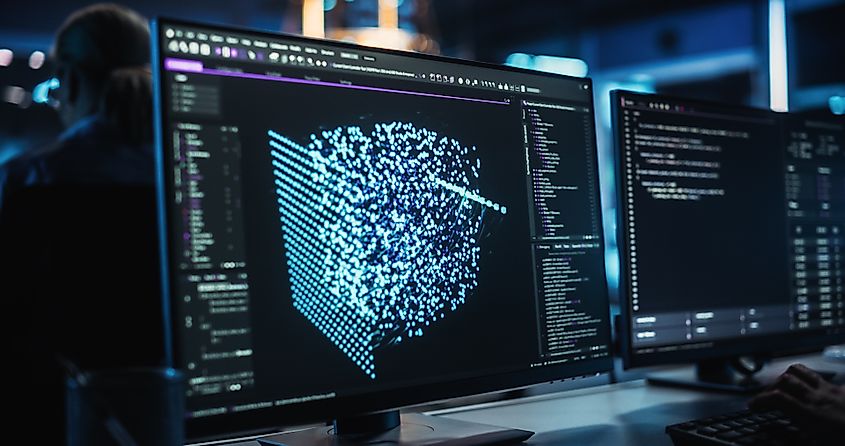
This isn’t just about speed; it’s an entirely different approach to computing. And that’s where the real risk lies. Most of today’s cybersecurity systems, used to protect personal data, financial information, and sensitive government records, depend on encryption that’s difficult for classical computers to break. However, for a sufficiently advanced quantum computer, those protections could become vulnerable.
In addition to security and simulation breakthroughs, quantum computing could significantly accelerate artificial intelligence. Training large AI models like ChatGPT requires vast computational resources to process massive datasets and optimize billions of parameters. Quantum systems may one day handle these tasks more efficiently by exploring multiple optimization paths simultaneously. This could reduce training times significantly and enable more advanced, powerful, and energy-efficient AI systems.
Quantum Communication:
Here’s the twist: while quantum computers pose a serious threat to digital security, quantum physics also holds the key to defending it. That’s the principle behind quantum communication. It relies on the fragile, precise behavior of quantum particles, such as photons, the basic units of light, to transmit information securely. These particles are so fragile that if someone tries to intercept or tamper with the data, the quantum particles change instantly. This disturbance alerts the system, making eavesdropping not only detectable but practically impossible.
In short, while quantum computers could break today’s encryption, quantum communication offers a new kind of protection, one grounded in the fundamental laws of nature. The challenge now is a race against time: to upgrade digital defenses before current systems become obsolete.
Quantum sensors:
Quantum sensors are incredibly precise instruments that can detect tiny changes in gravitational fields, magnetic fields, and electric fields. They can also be used to measure time very precisely. That allows them to do things humans have never been able to do before — like:

-
Navigation: Quantum sensors enable ships and aircraft to determine their precise location without relying on GPS, which can be disrupted or spoofed in conflict zones. By functioning as an internal positioning system using quantum gyroscopes and accelerometers, this technology offers a reliable alternative when satellite signals are unavailable or compromised, ensuring navigation continuity in critical situations.
- Subsurface Mapping: Detect and map underground facilities, bunkers, or geological features without the need for drilling or sonar. Quantum sensing technology can identify subtle variations in gravity or magnetic fields, allowing for non-invasive exploration beneath the Earth's surface.
On the civilian side, these sensors could help with:
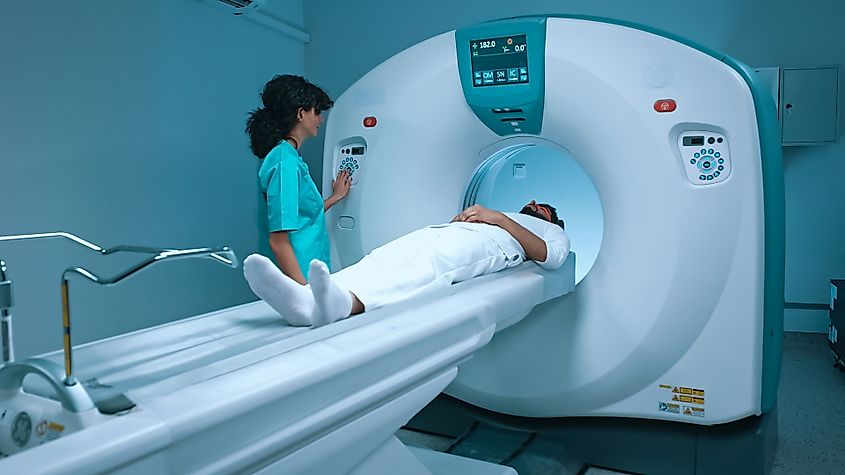
-
Geoscience: Detect subtle shifts in the Earth’s crust that may indicate impending earthquakes or volcanic activity, while also enabling the discovery of natural resources with reduced environmental impact.
-
Healthcare: Develop next-generation MRI machines that provide higher-resolution imaging with lower power consumption and improved patient safety. Quantum sensors also show promise in magnetoencephalography (MEG), where their high sensitivity enables precise measurement of the brain’s magnetic fields. This could lead to more accurate diagnosis and monitoring of neurological conditions such as epilepsy, Alzheimer’s disease, and other brain disorders.
It’s not about replacing existing tech, it’s about creating options when those technologies fail or are compromised.
Why Quantum Is a National Security Priority
The military applications are serious.
Consider this: Most of America’s critical infrastructure, from power grids to nuclear silos, relies on digital systems protected by encryption. Quantum computers, in the near future, may be able to break the encryption protecting all of it. Some countries are already collecting and storing encrypted data they can’t crack today, with the expectation that once they do have powerful quantum computers, they’ll be able to unlock it. This tactic, known in cybersecurity circles as “harvest now, decrypt later,” is a quiet but dangerous strategy.
The urgency has reached the highest levels of government. In 2022, President Biden signed National Security Memorandum 10, which formally recognized the threat that quantum computers could eventually pose to U.S. communications and national security. The directive instructed every federal agency to begin preparing now, with a goal of transitioning as many systems as possible to post-quantum cryptography (PQC) by 2035. That’s why agencies like the NSA, DARPA, and the Department of Energy are investing heavily in “quantum-resistant” encryption standards. It’s a race to secure the digital foundation of modern society before it becomes vulnerable.
And it’s not just the U.S.
How the U.S. Stacks Up
The U.S. government has already invested billions in quantum research through the CHIPS and Science Act, the Department of Energy, and partnerships with companies like IBM, Google, and Lockheed Martin.
But China? They’ve gone bigger. Much bigger.
| Country | Quantum Investment | Key Projects |
|---|---|---|
| USA | $ 3.6B+ | IBM Q, DARPA Quantum Navy |
| China | $ 15B+ (est.) | Micius satellite, Terrestrial Quantum Fiber Networks |
| EU | $ 8B+ | EuroQCI, QUANGO |
| UK | $ 3 B | arqit ltd |
Reports estimate that China has put up to $15 billion into quantum development, building quantum networks across major cities and even launching a quantum satellite to test ultra-secure communication.
Where America Stands
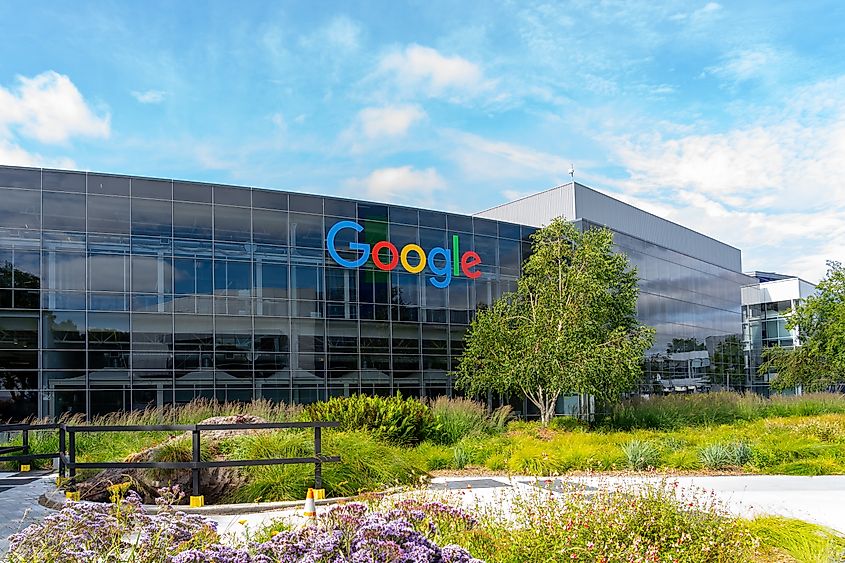
The U.S. isn’t sitting idle.
As of 2023, the US government has invested around $3.8 billion in quantum technologies, including:
-
The National Quantum Initiative Act, signed into U.S. law in 2018, launched a 10-year coordinated federal effort to accelerate research and development in quantum information science (QIS)
-
The CHIPS and Science Act (2022) which expands funding for tech manufacturing and science innovation.
-
Programs at the Department of Energy, NASA, and even the Department of Homeland Security.
In the private sector, there are also major companies in the game:
-
IBM and Google are competing to build powerful quantum computers.
-
Amazon (AWS) and Microsoft (Azure) offer access to quantum processors via the cloud.
-
Startups like Rigetti, IonQ, and Quantinuum are developing practical, scalable quantum systems here at home.
In many ways, the U.S. is leading the innovation race, but it remains vulnerable. Unlike in the 1960s space race, where America had near-total control over the supply chain, today’s quantum parts—especially advanced materials and cryogenic equipment—often come from China, Germany, or the Netherlands. That’s a risk policymakers are trying to fix.
What This Means for the Economy

This isn’t just a defense story, it’s an economic one, too. Analysts estimate the global quantum technology industry could be worth $1 trillion by 2035. Its economic impact is expected to be far-reaching, driving innovation, creating new markets, and disrupting existing industries.
Quantum breakthroughs could transform sectors like pharmaceuticals, healthcare, finance, logistics, energy, and advanced materials, unlocking solutions that are currently impossible with classical computing. From accelerating drug discovery to optimizing global supply chains, the technology offers enormous economic value.
At the national level, countries that invest early in quantum research and development stand to gain a significant competitive edge. This includes not only technological leadership but also the growth of high-skilled jobs, the expansion of regional tech hubs, and increased private investment. Conversely, nations that fall behind may face serious risks, from vulnerabilities in critical infrastructure and cybersecurity to a decline in global economic influence.
In short, quantum technology is more than a scientific breakthrough; it's a strategic asset. It has the potential to become a cornerstone of economic growth, national resilience, and global competitiveness in the decades ahead.


